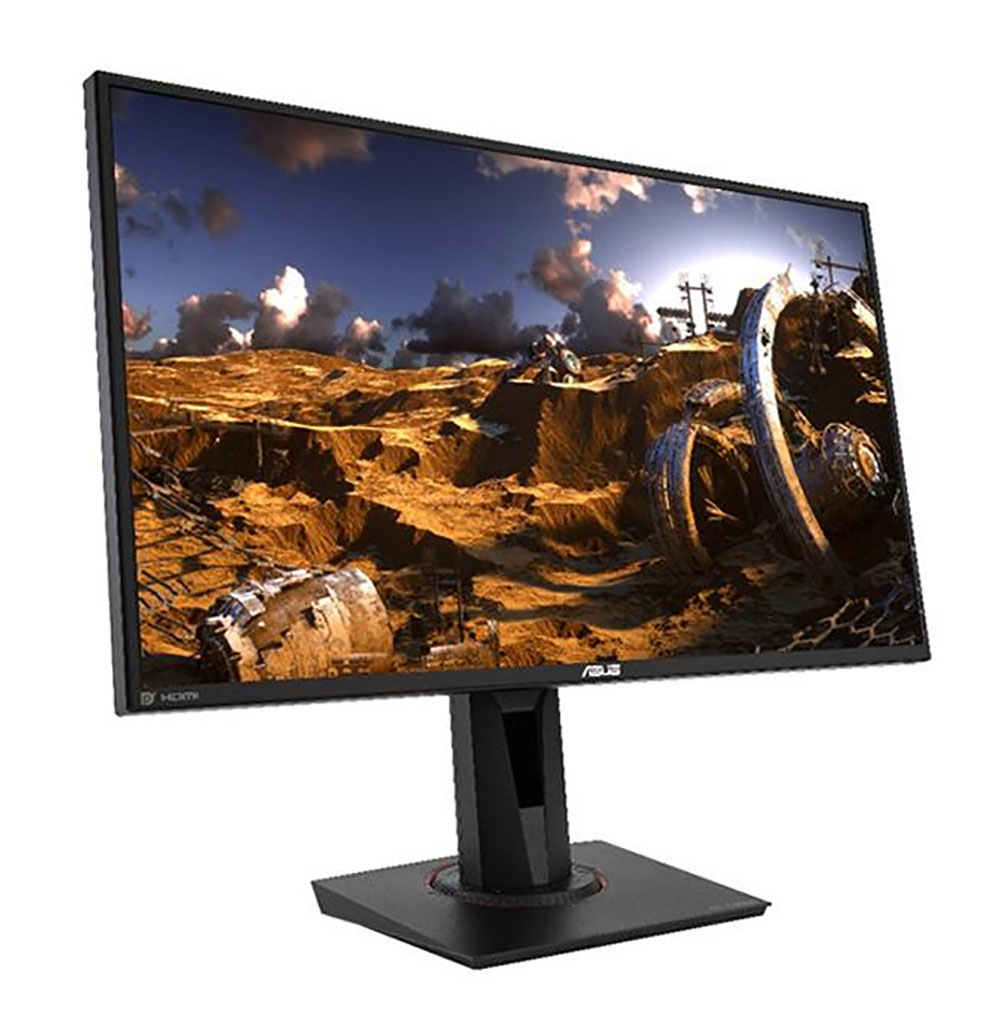Why you can trust Tom's Hardware
With most gaming monitors, you get what you pay for. There are many value choices that deliver great performance, and if you spend more on a premium screen, you generally get a premium experience. But every once in a while, a monitor comes along that offers something unique and wonderful at a reasonable price. The Asus TUF Gaming VG259QM is that monitor.
At first glance, it may not impress with its sRGB color gamut and HDR that neither adds to nor takes away from image quality; but the VG259QM’s ability to run Adaptive-Sync and ELMB at the same time is, dare we say, a game changer. The 280 Hz refresh rate is certainly impressive, but on its own, it won’t deliver the same experience. ELMB bests any overdrive we’ve seen at maintaining motion resolution at high frame rates. There is literally no difference in appearance between moving objects and stationary ones. Background textures stay sharp no matter what. And control response is as fast as it gets. The experience is addictive and once you see a VG259QM in action, you’ll have a hard time going back to another monitor.
There is certainly a lot to be said for high pixel density, ultra-wide curved screens and extended color. But even without those things, the VG259QM is one of the best gaming monitors we’ve ever reviewed. Its only flaw is a slightly light gamma curve. The addition of presets would fix that issue neatly.
In terms of pure gaming performance, this monitor is currently without equal. Now that Asus has cracked the low motion blur versus Adaptive-Sync code, we suspect the VG259QM is a harbinger of things to come. For now, though, we know of no other monitor that can do what this one does. If ultimate gaming performance is your goal, the VG259QM should be too.
MORE: Best Gaming Monitors
MORE: How We Test Monitors
MORE: All Monitor Content
Get Tom's Hardware's best news and in-depth reviews, straight to your inbox.

Christian Eberle is a Contributing Editor for Tom's Hardware US. He's a veteran reviewer of A/V equipment, specializing in monitors. Christian began his obsession with tech when he built his first PC in 1991, a 286 running DOS 3.0 at a blazing 12MHz. In 2006, he undertook training from the Imaging Science Foundation in video calibration and testing and thus started a passion for precise imaging that persists to this day. He is also a professional musician with a degree from the New England Conservatory as a classical bassoonist which he used to good effect as a performer with the West Point Army Band from 1987 to 2013. He enjoys watching movies and listening to high-end audio in his custom-built home theater and can be seen riding trails near his home on a race-ready ICE VTX recumbent trike. Christian enjoys the endless summer in Florida where he lives with his wife and Chihuahua and plays with orchestras around the state.
-
nofanneeded FHD gaming in 2020 is not acceptable :P the same way 800x600 screens are not made anymore today , also FHD should disappear and Monitors should start from 1440P.Reply
Enough already monitor makers ! Enough ! -
nofanneeded Replyplas7208 said:We need OLED monitors, not TN or IPS. This is old school for sure
Get OLED TV from LG will be alot cheaper than monitors for PC .
